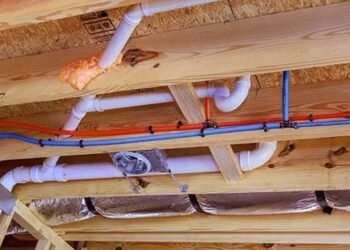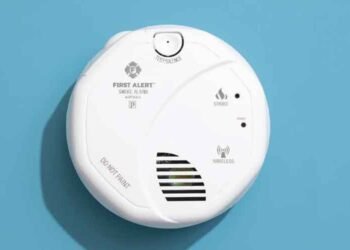If you’re looking for an effective method of improving your home’s air and/or water quality, carbon filters are a great choice. Combining both affordability and effectiveness, these filters have become increasingly popular among individuals who want to enjoy clean air and water indoors. But one of the most common questions people have about them is – how long do carbon filters last?
If this is something you’ve been asking yourself recently, you’ve come to the right place! In this blog post, we will be exploring everything there is to know about the lifespan of a carbon filter – from what factors affect it to why maintenance plays a vital role in its duration. So keep reading if you want to learn more about getting longer use out of your purifying system!
Understanding Carbon Filters
To properly understand the lifespan of carbon filters, it’s important first to grasp how they work. Carbon filters, also known as activated carbon filters, work through adsorption, where certain particles are attracted to activated carbon and bond with it.
This is particularly effective in trapping impurities found in air and water, such as chlorine, sediment, volatile organic compounds (VOCs), and unpleasant odors.
This adsorption process determines the lifespan of a carbon filter – once all the bonding sites on the activated carbon are filled, the filter will no longer be effective and will need to be replaced.
Factors Affecting the Lifespan of Carbon Filters
Several factors can affect the lifespan of a carbon filter. It’s not just a one-size-fits-all scenario – the duration of a filter can vary significantly depending on these specific conditions:
- Usage: The more you use the filter, the faster it reaches capacity. For instance, a water filter used by a large family will need replacement more frequently than one used by a single person.
- Quality of Air/Water: The impurities in your air or water directly impact how quickly the filter gets saturated. If the air or water is polluted, the filter will fill up faster, thus reducing its lifespan.
- Filter Quality: Not all carbon filters are made equal. High-quality filters generally last longer as they have more activated carbon and, thus, more bonding sites for impurities. Investing in a good quality filter is always wise to ensure efficiency and longevity.
The Role of Maintenance in Prolonging Filter Life
Regular maintenance plays a crucial role in prolonging the life of a carbon filter. It’s important to clean and inspect your filters periodically to ensure they function at their best. This includes removing dust or debris accumulated on the surface, which could impede airflow and reduce the filter’s effectiveness. If you’re using an AC Infinity carbon filter, these come with a pre-filter that should be cleaned regularly to maintain optimal performance.
Also, always check the manufacturer’s instructions for any specific maintenance guidelines. Some filters may require more frequent maintenance than others, especially if they are used in environments with a high level of impurities. It’s also important to replace the filter when necessary.
Even with the best maintenance, a carbon filter can absorb so much before it becomes ineffective. Regular replacement ensures your filter performs optimally, providing you and your family with clean, purified air and water.
When and How to Replace Your Carbon Filter
Knowing when and how to replace your carbon filter is critical for maintaining its effectiveness. Generally, carbon filters need to be replaced every 6-12 months. However, this can vary based on usage and air or water quality. If you notice a decrease in air or water quality or an increase in unpleasant odors, it’s probably time to replace your filter.
To replace your carbon filter, follow these steps:
- Step 1: Turn off the system and disconnect it from the power source. Safety first!
- Step 2: Remove the old filter. This can usually be done by twisting the filter counter-clockwise.
- Step 3: Check the new filter for defects or damage before installing it.
- Step 4: Insert the new filter into the slot and twist it clockwise until it’s secure.
- Step 5: Reconnect the system to the power source and turn it on to test the new filter.
Remember, always refer to the specific instructions provided by the manufacturer for your particular model. Consider setting reminders on your calendar to check and replace your filters regularly, ensuring your home stays fresh and healthy.
Maximizing the Use of Your Purifying System
To get the most out of your purifying system, it’s essential to understand how it operates and how to maintain it adequately. Here are some tips to help you maximize the use of your system:
- Regular Maintenance: As mentioned earlier, regular maintenance ensures your system’s longevity. This includes cleaning and inspecting filters regularly.
- Optimal Placement: The location of your air purifier or water filtration system can significantly impact its effectiveness. Place your purifier in areas where you spend the most time. Install water filters where they will be most practical and efficient, like kitchen taps or showerheads.
- Correct Usage: Ensure you’re using the system as designed. Overusing or underusing it can affect its performance and lifespan. For instance, keep your air purifier on as much as possible for best results.
- Timely Filter Replacement: Always replace filters at the recommended intervals. Overused filters can’t perform effectively and may even cause damage to your system.
Remember, a well-maintained purifying system means greater efficiency, longer lifespan, and improved air and water quality in your home.
Conclusion
In conclusion, caring for and maintaining the effectiveness of your carbon filters is a task that requires attention to detail and regular maintenance. The lifespan of your carbon filters heavily depends on factors such as usage, air/water quality, and the filters’ quality.
Regular check-ups, cleaning, and timely replacements are integral to ensuring the filters continue to operate at peak performance. Remember, a well-maintained filter contributes to the longevity of your purifying system and guarantees you and your family access to cleaner, purer air and water.
By following the guidelines and tips in this document, you can ensure your carbon filters’ maximum effectiveness and lifespan and enjoy a healthier living environment.












